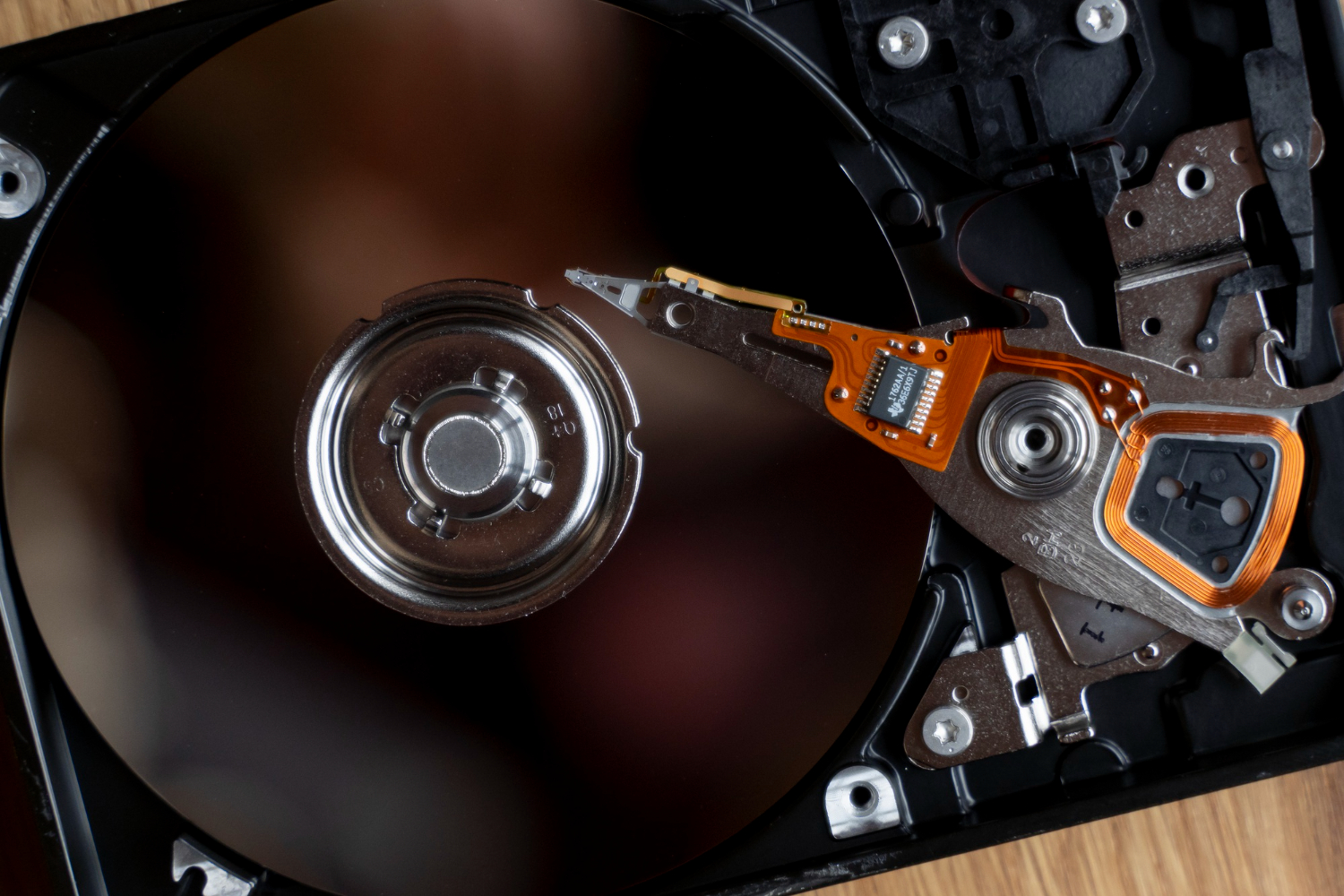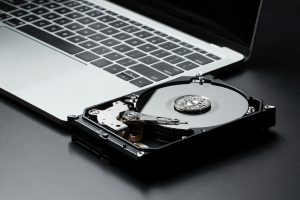Ever notice your computer suddenly making strange ticking, grinding, or high-pitched whirring sounds? If you’ve heard something odd coming from your hard drive, you’re not alone. These unexpected noises can be alarming, especially if they come out of nowhere. Many people overlook them at first, assuming it’s just a slow system or an ageing device. But those little sounds could be your hard drive’s way of saying something’s wrong.
Ignoring weird noises can lead to real problems, especially if your files start disappearing or your computer slows down right after. A failing hard drive often gives some kind of warning, and sound is one of its first red flags. Knowing how to tell the difference between normal drive activity and a warning sign might just save your files from being lost for good.
Understanding Hard Drive Sounds
Hard drives make some level of noise when they’re running. The internal parts have moving components, such as spinning platters and a mechanical arm, which create low sounds during read or write activity. Small clicking or gentle humming is usually just part of normal operation.
When these sounds get louder or start changing suddenly, it might be a sign something isn’t working right. It’s helpful to know the difference between normal operational noise and something you should be worried about. That way, you’re not caught off guard if a problem is looming.
Typical hard drive sounds during normal use might include:
– A faint clicking while files are opening or saving
– A soft hum when the drive is spinning up or staying active
– Occasional low chirps as data is transferred
On the other hand, loud, repetitive, or irregular noises are often bad news. These aren’t just signs of wear and tear. They can be hints of deeper hardware issues. Mechanical drives are more likely to show these symptoms, especially when parts start wearing out over time.
A healthy hard drive usually keeps the same sound pattern over the years. If it suddenly starts sounding very different, that’s a pretty good reason to take a closer look. Noise changes can happen before any file loss or performance drop, which is why it’s smart to pay attention when things sound off.
Common Hard Drive Sounds And What They Might Mean
Hard drive issues can often be identified by specific sounds. Here’s a breakdown of what you might hear and what those sounds might be pointing to:
1. Clicking or Repetitive Ticking
This usually means the read/write arm is having trouble positioning itself correctly. It keeps trying and failing, which causes rhythmic clicks. This could suggest a mechanical failure inside the drive, or in some cases, bad sectors that the drive is struggling to read.
2. Grinding or Scraping
A grinding noise might mean parts inside the drive are scraping together. This could be a sign that bearings are worn out or that the read/write head has touched the platters. This is a serious issue that can cause significant harm to your data. If you hear this, turning off the drive as soon as possible is best.
3. Beeping
Some hard drives might start making a beeping or buzzing sound when there are power problems or when the heads are stuck and can’t move properly. If your drive lights up but isn’t being detected and you hear beeping, it could be a power or firmware problem.
4. High-Pitched Whining
This is often caused by motor or spindle issues. While it doesn’t always mean total failure, it’s a good idea to start backing up your files. It could point to the drive struggling to spin at the correct speed.
For example, we once helped a client whose laptop had been making a high-pitched whine for weeks before it completely failed. They hadn’t thought much of it until one day it wouldn’t boot at all. Catching that noise earlier and acting sooner could have kept things far less stressful.
These sounds don’t tend to fix themselves. If you’re hearing any of them, it’s best to stop using the drive and decide on next steps before anything important is lost.
Steps To Take When You Hear Strange Sounds
Hearing odd sounds from your hard drive isn’t something you should ignore. The sooner you act, the better chance you have to protect your data. Strange noises often point to a physical issue, and continuing to use the drive increases the risk of permanent damage.
Here’s what you should do right away:
– Back up your files: If the drive is still readable, transfer your most important data to a different device. Start with personal photos, work documents, or anything you can’t replace.
– Power down the machine: If the noise gets louder or starts sounding more aggressive, turn off the computer. Preventing more activity can reduce the chances of making the problem worse.
– Don’t run repair software: Tools claiming to fix or rebuild hard drives can make matters worse when hardware is failing. These programs are better suited for minor software issues.
– Don’t open the hard drive casing: It might be tempting to take a look inside, but opening a drive outside of a clean room introduces dust and scratches that could destroy your data entirely.
– Get help from professionals: Experts use proper equipment to recover data without risking further damage. If your files matter to you, their involvement early can make a big difference.
A good example: someone brought us a hard drive that started beeping. They tried plugging it into different computers, thinking it was a connector problem. That made the issue worse. Fortunately, they stopped before opening the drive. Because they acted fairly quickly after that, we were able to recover most of their files.
It’s easy to want to fix it yourself, but with hard drives, less is more. Take small steps and let someone trained handle the deeper issues.
When To Seek Professional Help For Hard Drive Recovery In Canada
Not every hard drive noise turns into disaster, but it’s better to be safe than sorry. Some problems need professional data recovery, especially when there are signs of hardware or physical failure. Knowing when to reach out can make all the difference between saving everything or losing it for good.
Here are some signs it’s time to stop using the drive and talk to a specialist:
– The drive is making loud grinding, scraping, or repeated clicking sounds
– Beeping noises or flashing lights on external drives
– The computer no longer recognises the drive at all
– Files are disappearing or failing to open
– You’ve tried basic checks and the problem isn’t going away
Data recovery services work with tools and controlled environments that match exact models and conditions. That means a better shot at getting back everything from the drive, including things you might have thought were already lost.
In Canada, where people rely on digital storage across personal and business settings, it helps to know there are professionals near you who deal with all kinds of media damage. From hard drives to SD cards and RAID sets, having access to expert recovery gives peace of mind if things go wrong.
Know the Signs Before It’s Too Late
It’s natural to get worried when a hard drive starts making strange sounds. Losing years of memories or important work files can feel overwhelming. But if you notice those early warning signs and take action quickly, you give yourself the best chance to recover your data safely.
The sound your hard drive makes is like a signal. Don’t ignore it. A click, a beep, or a whine might be the only heads-up you’ll get before bigger problems kick in. Paying attention to those clues early means you can avoid losing everything later.
If things seem off, pause, assess, and speak to someone who deals with cases like yours. Every sound tells a story. The key is listening before silence means something’s gone forever.
Pay attention to the sounds your hard drive makes to protect your data and prevent potential loss. If you’re facing hard drive issues, don’t wait for the problem to escalate. Explore TeraDrive’s reliable solutions for hard drive recovery in Canada. With expert help, you can recover lost files and ensure your data stays safe. Let TeraDrive guide you toward a resolution, giving you peace of mind when it matters most.





